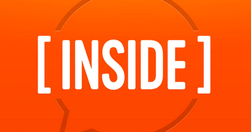
Is data journalism just another opportunity to bamboozle an audience? Surely publishing the data in interrogable form would be the answer? "data give commentary a false sense of authority since data analysis is inherently prone to bias. The author’s priors, what he believes or wants to be true before looking at the data, often taint results that …

A pretty good idea of where news & journalism will be in 5 years, or deja vu all over again? "the organizations worth backing must be run by tech savvy, top-notch people focused on social distribution of stories that serve an existing but underserved niche audience. ... “They are all technology companies first ... understand how people utilize t…
"“In the old days, the few big newspapers were so profitable they could run desks on most of the most important issues in the world. Now, as the news landscape fragments, investigative journalism often takes place in nonprofits... " - Upworthy partners with ProPublica and advocacy media groups on original content » Nieman Journalism Lab
@Poynter's piece seems fair. While it's true that "rebundling of news is booming. New aggregation sites with a social media twist, led by BuzzFeed, are working ingenious variations on the first wave like The Huffington Post..." ... and that if everyone in the world had a smart phone and an iPad, the global news market will grow rather than shri…
"some of the BBC’s most experienced investigative reporters explain how they find and tell their stories." Access to the BBC Academy's College of Journalism website is free to everyone in the UK and commercially available overseas

Interesting perspective on the rash of new tech-content hybrids emerging in the media space. Back in the day, companies could be either tech or content, but not both: "What were you going to be really good at? Engineering or “content”? You couldn’t do both, because that would mean that one would be subordinate to the other. And if you were going…
"We don’t write articles. We tell stories and those stories persist over time... Each story is comprised of fragments ... stitched together to create a story. In many ways circa represents the next step in the atomization of news ... allows people to read stories and identify new developments faster ... and makes it possible to dig deeper by lin…
"“Fished out of the shadows, old news coverage in China’s media can provide clues to the family connections of government officials as reporters investigate their financial dealings.”"

Oh dear. "Andreessen mentions the “Chinese wall” that many media entities maintain between the business side and the editorial side. This approach is flawed, he says: “No other non-monopoly industry lets product creators off the hook on how the business works.” Many businesses, Andreessen argues, manage to balance incentives and conflicts and ca…

Les Echos looks to be doing what I have long dreamed to do for the bloggingportal reboot - deploy semantic analysis to aid content discovery and to underpin a new wave of media and comment. But do we have to call it an 'aggrefilter'? "Les Echos launches its business news aggrefilter ... to gain critical working knowledge of the semantic web." …
“The best explainers are direct, concise and easy to understand. But investigative journalism is rarely any of those things, instead reflecting the messiness of real life… explanation is just the beginning, a gateway into the deep-dive…”

Damn, some of these ideas I implemented 12 years ago for the EC's thematic architecture. Nice to see them in a different context: First, the problem with current news journalism: "The column inches devoted to the new are column inches not given to the important... this stress on novelty is a holdover from when the cost of making and moving paper …
A Storify on 8 possible business models for journalism from Marc Andreessen (Cofounder of Netscape, now VC at a16z). Highlights: (6): "We already see the rise of new kinds of aggregators in the wake of the great unbundling of newspapers & magazines. Signal-to-Noise: "quality can easily coexist with crap. All can thrive in respective markets.... …

Sobering reality check on new journalism ventures which: "...from a business perspective, hardly be worth commenting on, except for the fact that the people doing the commenting — other journalists — believe that perhaps, in a declining profession, this could be a new life. It's journalism-centricity to a particular myopic degree.. an extreme exa…
Nice NYTimes tour of the current news startup wave: Key point: "quality, customized advertising on sites with good editorial content was actually a solid business with growing margins... Business Insider has had nine consecutive quarters where the revenue per page was rising.... “There are fundamental secular trends — ad growth, mobile growth, pa…

Looking forward to geeking out: Info architecture: Guessing some serious cardsorting went into this off the cuff remark: "the new FiveThirtyEight will provide coverage of five major subjects: politics, economics, sports, science, and lifestyle. By design, almost any topic in the news can potentially fit into one or more of these categories. " A…

Interesting points emerging from the first two articles I’ve seen about Jason Calacanis’ his new venture, Inside.com.

Medium on how magazine editing is morphing as technology transforms online longform: "Online, each story is at best its own magazine, sent out to find its own temporary audience. One article may absorb people who subscribe, or would once have subscribed, to Foreign Affairs; another might absorb devotees of Wired or Men’s Health or Glamour. The au…
NYTimes.com on how legacy organisations failed to go digital, leaving field open to tech-first startups: "Vox is a digitally native business, a technology company that produces media, as opposed to a media company that uses technology. Everything at Vox, from the way it covers subjects, the journalists it hires and the content management systems …

"As we enter a new year we have crowdsourced a checklist of 10 vital skills for journalists to produce digital content in the most effective ways ... We hope that the mix of skills, techniques and qualities listed below would help journalists to stay ahead of the game in terms of digital innovation, be able to harness the latest tools and techniq…

Apparently, and hopefully, we're seeing: "the end of a print media era defined by high-brow broadsheets and low-brow tabloids. Today, the idea of what constitutes “respectable” media is in flux as the online heirs to the tabloid tradition produce more quality stories and traditional outlets like the New York Times even look to them for inspiratio…
"we essentially write new content that we then throw away at the end of the day. Content shouldn’t die by design... topical contexualization... means guiding readers through large, convoluted news topics. ProPublica’s topic pages get us closer to contextualizing huge topics. For every major series that they cover over time, there’s a landing page…

Nothing new, but then it's 2013 review time: "this was the year someone isolated the DNA of the viral story, and the world ... saw for the first time the awesome potential of viral content ... Upworthy had about seventy-five thousand [Facebook] likes per article, twelve times more than fourth-place BuzzFeed. Among them were posts like the one wh…
#Context emerging as 2014 theme: "...newsrooms are going to reframe our understanding of “responsive design.” We’re going to see content move beyond simply responding to screen size and instead respond to reader context, adapting to behavior." - Nieman Journalism Lab

Today's online news environment is ideal for spreading bullshit. As someone like HuffPo's Washington bureau chief puts it: “If you throw something up without fact-checking it, and you’re the first one to put it up, and you get millions and millions of views, and later it’s proved false, you still got those views. That’s a problem. The incentive…

Consider this your starting point to tap into Google’s suite of digital tools that can enhance newsgathering and exposure across television, radio, print and online. Whether it’s refining your advanced search capabilities, improving audience engagement through Google+, or learning how to visualize data using Google Maps, this website is intended …

Snowden, Snowfalled: an awesome HTML5 interactive feature.

“There is a huge audience of readers out there craving this kind of storytelling ... With phones and tablets, they now always have a reading device available on them to dig into something.”
"too many journalism students and journalists are native users rather than actual natives. The difference is enormous, and has real implications. Actual natives can build in addition to use digital tools, giving themselves many more opportunities to make better journalism. Users can only work within the constraints that other people set." Amen fr…
"without giving up their traditional skills, journalists are becoming more and more information "managers". They are behaving like human filters which ... verify and add context to what user-generated content they think to be relevant, and feed it onto Web pages or mobile applications. Thanks to the rise of new social media curation platforms, t…